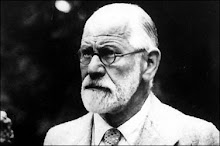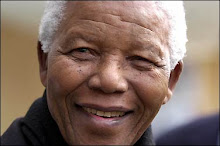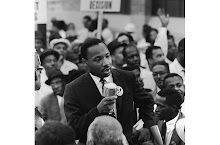Thursday, January 31, 2008
most leaders choose to lead with reality
and some, only a rare few
chooses to lead to lead with the truth
Posted by diz-zulkifli at 7:33 PM 0 comments
emperor of the silent cries
i am the emperor of the silent cries
i stand trial to the crime that i didn't do
and to the offence that i didn't commit
but with the methyr faith inside of me
i shall prevail,
i shall prevail as the emperor of the silent cries
like watching a lady cry
over the death of her new born baby boy
like a bystander i tried
to stretch out my hand and comfort her
"WHY!!" she questioned
"Why is fate doing this??"
"Why not take my life but his??"
all night her suffering i felt
all night
the next day she blew out her misery
like a candle as to her faded life
like the wind as to a bladed knife
Posted by diz-zulkifli at 12:34 AM 0 comments
Cause he's a.....
A man once came up to me,
and he was an arrogant man for sure
but the more i knew him
the more i realised i was being immature
not that i had an immature JUDGEMENT of him
but immature, for i had wrongly defined the ARROGANCE in him
cause he's a.....
he was beyond any written word
written on any given Monday
vocal by any given speech
spoken on any given Sunday
cause he's a.....
he was like a little boy
boasting to his friends about his two little sweets
given to him by the pavement
and exaggerated that it tasted as pure as the milk
from his mom's two little tits
he was like a commander
celebrating the surrender
of a town he had conquered.
but with guards made up of cows?
"Sure!", you start to ponder
laughing at men who use two hands to work
as he only had to use one hand to squirt
mocking the men's idea to evolve and be involved
and saying that only his ideas are in the centre
of where the universe revolves
cause he's a.....
fuck he even feels that he has the right
to reject ideologies. ideologies;
for the intention of good,
for that regression should stop,
for the progression of honesty,
and even,he even in the word that i can't describe
rejects ideologies from
the great intervention of god
cause he's a.....
if he was that great
why did we not only fall, but, fall in grace
smiling, as though we had failed
sent to the gutters; innocent, refusing bail
all this so that freedom might prevail?
if he was that great
why is it then, when the tsunami came
we stab his back so that it looks like an accidental death
knowing that we will eventually be dead as well?
were we at peace?
if he was that great
why then did we not feel
that we were great as well?
if he was so great
than why the fuck would i feel nothing
by showing him this (middle finger)
cause guys, fuckhe's just a god created waste when he messes with
our this (points to the head)
and our this (points to the heart)
and why?
because he is a fucking human being
Posted by diz-zulkifli at 12:29 AM 0 comments
Thursday, January 24, 2008
ode to my Japanese cultured leader you see
who's vast knowledge and wisdom appeal
appeal to my very existence of the wrong
and to my every being to defend
from every fibre of my soul to be strong
to the two delicate drum in my ear
it obviously appeal me to tears
oh my (clasp my mouth)
ode to my Japanese cultured leader you see
for he had made it evident that my ears can weep
that bad leadership reeks
like left over coffee or roadkill or both on every other week
it stings as it stinks pulling string was what he taught
ironic how defiant the japanese were to not pull anything
and to forget and forgive on why they had fought
they had maybe taught him well
how cultured he must be
to see and yet not see
the art of zen on a nucleared bomb bee
ode to my Japanese cultured leader you see
oh my i must be disillusioning my own mind
he had nucleared me as well
oh how great the wonder of genetics and time must be
to form a murderer of mind
but leads like a 5 letter private part that starts with a "p"
out of wedlock he had to be
no love there as anyone can see
to bad for me
i had never like sake and sushi ironically
ode to my Japanese cultured leader you see
Posted by diz-zulkifli at 6:22 PM 0 comments
Posted by diz-zulkifli at 11:15 AM 0 comments
Wednesday, January 23, 2008
Dannie and Ilyana's sunset cocktail party
(God bless the both of them)
(a lovely couple indeed)
(yana showing her moves)
(getting it real with peeps)
(the DJ console at Lee Kwan Yew's hideout)
(what is a party without happy dancing people and happy singing rap metalist)
(cheena giving you his thoughts)
(oh well, there must be a red hooded monster somewhere out here)
(potato chips will do just fine thank you)
(haha mingling, what a funny word)
(the new look/expression/pose for 2008, but i was actually surprise when i realise we had the same style of shirt on)
Posted by diz-zulkifli at 3:56 AM 0 comments
Tuesday, January 22, 2008
The Presence of Ideomotor Movement
Though it is rarely spoken of in discussions about human movement, descriptions of ideomotor activity are present in the medical literature beginning in 1852 when The Proceedings of the Royal Institution reprinted a lecture by William Carpenter. He identified ideomotor as a third category of nonconscious, instinctive behavior, which also included excitomotor (breathing and swallowing) and sensorimotor (startle reactions) activity. Ideomotor movement is secondary to thought, and it begins in the cerebrum.
The discovery of its presence and descriptions of intricate studies demonstrating its manifestation conducted in the 19th and 20th centuries can be found in Hermann Spitz's text (see resources).
In short, ideomotor action is well documented and the reality of its presence has never been refuted. Instead, it seems simply to have been forgotten. As Ray Hyman states, "Although the effects of ideomotor action have been understood for at least one hundred fifty years, the phenomenon remains surprisingly unknown, even to scientists."
Ideomotor action is referred to as "mischief-making" because its unrecognized presence is actually the reason movement occurs in activities such as dowsing, the play with the Ouija board and "facilitated communication." In fact, any activity in which movement is thought to be caused by forces that transcend our senses or are described as metaphysical in nature should be suspected to begin with movement that we don't consciously plan. The word volition is especially important to this concept. Defined as "the power of choosing; the act of making a choice or decision; willful," volition is subtly different than simple reflexive activity thought not to include the higher centers of the brain. And, like a simple reflex, ideomotor movement occurs instinctively, though it is often far more complex and always without volition. This is the primary reason those doing it do not commonly take responsibility for its manifestation or consequence. We suppose ourselves to be consciously in control of our movement for the most part, and it is difficult to convince people otherwise under ordinary circumstances.
Movements, especially complex and meaningful movements without volition, are an important aspect of our ability to communicate. This has been demonstrated in numerous studies detailing the non- verbal aspects of conversation (see resources). Without them, we must simply hope that others do not take our meaning in the wrong way, though our words might be the same written or spoken over the phone. These movements are by definition ideomotor in nature, and they are expressed fully when we are trying our best to be understood fully. When we feel we must restrict them due to some temporary social convention, their loss will be felt as a restriction and an isometric contraction of the musculature normally used for their expression. The consequent restriction in normal range of motion might be assigned to some articular or connective tissue dysfunction if its origin in the sublimation of full ideomotor action is never considered. Imagine being desperate to speak aloud but not being allowed to do so. Wouldn't your throat muscles isometrically contract? As William James said, "Whenever a movement unhesitatingly and immediately follows upon the idea of it, we have ideomotor action. (This is not a curiosity), but simply the normal process...and we may lay it down for certain that every mental representation of a movement awakens to some degree the actual movement which is its object; and awakens it in a maximum degree whenever it is not kept from so doing by an antagonistic representation present simultaneously to the mind." (emphasis mine) Remember, neurons get many signals at once. The total effect is determined by adding those that are excitatory and subtracting those that are inhibitory.
If I were to describe a culture where free speech was restricted, I would probably note a chronic tightness in the throat; a manner of speaking that was stilted and formal, and not always authentic. The unrequited desire to move the mouth freely would be evident in those muscles designed to do so. There would probably be people there responsible for keeping others quiet, and, in collusion, the culture would go along so as not to cause disorder.
If we as a culture were not comfortable with bodily expression that is unique and nonconsciously motivated, it would follow that there would be a deep distrust of ideomotor activity, especially in its fullest form. We would create an "ideal" of posture that was largely static in nature, and, when allowed to change, would only be allowed to do so in specific, choreographed ways. Of course, it would be virtually impossible to ablate this instinctive activity altogether, and all those who broke with the imposed traditions of stance and movement could not possibly be jailed. There would just be too many of them. But, I think, it would be possible to simply use the ideal stillness and erectness of the body as an exemplar of discipline, serenity, strength and high moral purpose. In such a culture, it would be clear to any school child that slouching and fidgeting were the activities of the undesirable student. Being able to sit or stand "at attention" for prolonged periods, while largely impossible without tremendous effort or discomfort, becomes an unattainable but constantly desired goal. There would even be a profession largely devoted to helping others stay erect and still. This profession would be taught to frown upon spontaneous bodily expression; perhaps assuming it was some form "illness behavior." Not knowing the consequences of restricting ideomotor expression (isometric contraction, nonconsciously generated), they would interpret all muscular "tightness" as a lack of appropriate relaxation. Methods of muscular "stretching" combined with admonitions to consciously override the brain's seemingly inappropriate message to the muscle with willful means of inhibition would be invented. Large doses of this "care" would be required to keep the ideomotor expression at bay. And they wouldn't work especially well. People in the profession would often be heard to say things like, "I can't treat her. She just won't relax!"
The Purpose of Ideomotor Movement
That this movement exists is irrefutable. Its origins are instinctive and necessary for normal functioning. We cannot hide entirely our intention to move despite our best efforts when we sense that movement is productive and necessary for our preservation. Trying to hide what we intend to do requires careful practice, and it has applications throughout the world of sport where one's opponent is trained equally hard in observational skills to combat this deception. An especially interesting discussion of how good we can become at sensing another's intention to move can be found in Jeremy Campbell's book Winston Churchill's Afternoon Nap. (see resources). It has to do with avoiding a blow in boxing despite the fact that it is commonly delivered faster than it should be possible to do so. It is evident that the ideomotor activity preceding the visible movement of the arm is sufficient to sense. In other words, it's "telegraphed," and a trained opponent will see it coming. There are many other examples from sport, but of more interest to me is something like the "tell" in poker; those small behaviors that prove revealing to anyone noticing them and understanding them in context. The classic text on the subject contains a forward written by an anthropologist (see resources).
If, as William James suggests, ideomotor activity underlies most of what we do in order to function throughout the day, and it begins almost imperceptibly in many instances, why is this useful information for those of us dealing with patients?
I described earlier a culture where any nonconsciously motivated bodily expression was strictly controlled by means of a pervasive bias against it. In order to perpetuate this, it might also be implied that erect stillness or movement outside a choreographed regimen was "unhealthy" in some way. I have the sense that this is where I live. And, in my clinical experience, constant admonitions toward erect posture, to "just relax," and to follow prescribed regimens of exercise designed to strengthen muscles and stretch connective tissue have simply not been as effective as we were taught they would be. The majority of therapists attending my workshops suffer from chronically painful problems (primarily spinal), and the traditional methods have not helped. To me, this is quite meaningful, although it is a fact rarely spoken of openly.
I am suggesting here that ideomotor activity does not merely represent our thoughts about what's in our poker hand, or that it exists only to reveal our desire to move, but that it is also present to correct us. I'm saying that one of its primary functions is the reduction of mechanical deformation, and that this is the main activity our culture frowns upon. Consider this: A child on his first day of schooling will breath and swallow (exicitomotor) and the teacher says nothing, he startles in his seat if the door slams (sensorimotor) and no one complains. But if he shifts in his seat in order to grow more comfortable, if he expresses fear or anticipation or anxiety that is deemed inappropriate, there is a very good chance that all of this movement will be discouraged.
Although the culture eventually encourages the expression of feelings with words and some array of gestures, the ideomotor movement essential for comfort never finds the same acceptance or approval.
Suppose one day as the end result of a unique set of circumstances enough mechanical deformation is created to produce nociception. Without any trust in the ideomotor activity necessary for correction (the "antagonistic representation present simultaneously to the mind" of William James), anybody would withhold its expression. The resultant isometric activity would be mistaken for guarding, and all effort directed toward its reduction, never its full expression. I think, however, that another's desire to move is palpable, and that when it is encouraged with Simple Contact (see resources) it can prove to be an effective method of relieving pain and restoring normal autonomic tone (see Levine's article and book in resources).
When therapy ignores the presence of ideomotor movement, it loses an opportunity to enhance the instinctive abilities of the patient. When it misinterprets the resultant isometric activity, it spends time and effort trying to get rid of something that should be amplified by means of enhanced awareness and acceptance. Until our community begins to understand more about functioning at this level, it will fail to help many who are simply trying to correct, but can't find a safe place to do so.
Posted by diz-zulkifli at 7:25 AM 0 comments
Monday, January 21, 2008
Sunday, January 6, 2008
2 weeks ago my supervisor pass me a cheque for $100. I ask him why and he told me that i won October staff of the month for bar and he pass me the cheque on December. Go figure, the delivery guy must have lost his way in the alps.
So i started to wonder. Its nice getting staff of the month and all, it'll look good on my resume but the significance of it being won especially in a place like cafe del mar is like a no biggy. I mean, everyone knows that it's a rotation thing and that they might (and I'm assuming here) award the staff that is not only a good staff but also a good staff that is on the verge of leaving the company or something like that. I don't know, well it seems that way to me.
So anyway yahoo, staff of the month. Me? Haha i don't give a damn.
The PLAN!!
Yes yes yes, i wanna talk about "THE PLAN". I have plans, and Dubai IS the plan. "K" (who is someone i know) has started talking with his connections and that is making me very excited. Can't wait for the action to happen. Oh man Dubai. Than maybe i work in a bar in Miami than London than maybe Johannesburg. WOW. I will be a globetrotting bartender who has his own show in discovery channel saying the newest explicit language man had ever heard off. CHEEEEBAI!! Hahaha fucking yeah. Let's start the cheebai trend.
Nadiah introduced me to a course in psychology that is available in a certain polytechnic recently. It was very tempting and it got me thinking and thinking hard on what my capabilities is, are or were. Really tempting. Am still thinking about it, still......damn i'm still thinking about it. Sigh. I shall just put that thought a side for the meantime. If only i knew about it after i left for national service like 4 years ago. Than maybe i would have taken it up but maybe now is just not the right time.
thats it for now....later
Posted by diz-zulkifli at 11:32 AM 0 comments
Blog Archive
-
▼
2008
(29)
-
▼
January
(14)
- No title
- most leaders choose to lead with realityand some, ...
- song's 17 birthday at pure(mos)
- emperor of the silent criesi am the emperor of the...
- Cause he's a..... A man once came up to me,and he ...
- ode to my Japanese cultured leader you seewho's va...
- MOS January 23 2008(Pose of the century):xander, m...
- Dannie and Ilyana's sunset cocktail party (God ble...
- You are not by any chance, hearing things
- The Presence of Ideomotor Movement Thoug...
- The power of the mind II
- The power of the mind
- Banksy is ma man
- 2 weeks ago my supervisor pass me a cheque for $10...
-
▼
January
(14)






















